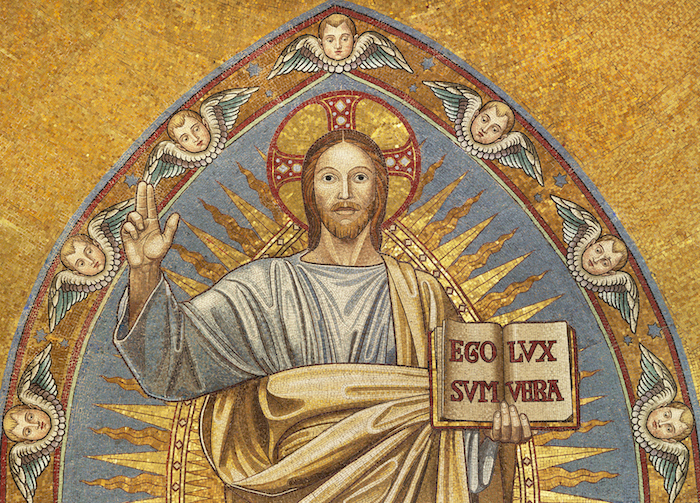Question:
Jesus told many stories about God’s willingness to forgive our sins — like the story of the prodigal son. But he also said, “Not everyone who says to me, ‘Lord, Lord,’ will enter the kingdom of heaven, but only the one who does the will of my Father” (Mt 7:21).
And in the account of the king who gave a great banquet, but the invited guests declined to come, Jesus says at the end, “Many are invited, but few are chosen.” How do we know if we are among the “few” or the “many”? (Louisville, Kentucky)
Answer:
First, as to the scriptural verse “Many are invited, but few are chosen” (Mt 22:14): A common view among Scripture scholars is that the passage is not meant to forecast the relative proportion of those who will be saved.
Instead, it indicates in its context that relatively few of the Israelites of Christ’s time would choose to follow Jesus and that his message would then be offered to the gentiles. Some commentators also note that the relative harshness of the passage is a rhetorical and pedagogical technique on Christ’s part to highlight the centrality of his teaching.
As to the crux of your question — how can we be sure that we’re among those who will be saved? The answer is that we can never be certain. All we can do is trust in Christ’s teaching and make a decent effort to respond appropriately in faith and in conduct.
I am comforted by such passages as 1 Timothy 2:4, where Paul says that God “wills everyone to be saved and to come to knowledge of truth.” I have always felt that, in the end, most people will make it to heaven. Otherwise, why would God have decided to create us all if the whole enterprise is destined for failure?
Question:
Why was the wording of the blessing of the wine at Mass changed from “for you and for all” to “for you and for many”? Didn’t Christ die for all of us? Can you please shed some much-needed light on this confused Catholic? (Radford)
Answer:
You are absolutely right that Jesus died on behalf of all of us. That truth is manifest in various scriptural passages, such as 2 Corinthians 5:15: “He indeed died for all, so that those who live might no longer live for themselves but for him who for their sake died and was raised.”
But you are also correct that, since the current English text of the Mass was introduced in 2011, the priest now says when consecrating the wine: “This is the chalice of my blood, the blood of the new and eternal covenant, which will be poured out for you and for many for the forgiveness of sins.”
That change had been directed by Pope Benedict XVI in 2006, to be applied to all subsequent translations of the words of consecration.
Why the change? To make the prayer more faithful to the words of Jesus at the Last Supper in the accounts of Matthew and Mark: “This is my blood of the covenant, which will be shed for many” (Mk 14:24).
It also reflects the fact that the salvation won by Jesus for the sake of all is not applied automatically; it requires that to attain eternal life each individual must, to the extent of his or her understanding, accept and live in the grace won by Christ.
Question:
With the COVID-19 restrictions, why doesn’t the bishop of our diocese offer general absolution for all those unable to come to church? Our church building is so small that only about 25 to 50 parishioners can fit in for Mass — and then, only with a reservation. Many are reluctant to come during the pandemic, and the elderly and the sick in particular are anxious to receive the sacrament of reconciliation. (Northampton, Pennsylvania)
Answer:
As I respond to this question, received in mid-October, most parishes I know of have already resumed — although on a more limited basis — a regular schedule of weekend Masses, together with opportunities for parishioners to receive the sacrament of penance.
At the height of the pandemic in March, the Vatican did announce that, in places particularly hard hit by the coronavirus, conditions might exist to grant general absolution to the faithful without their personally confessing their sins first, in cases of grave necessity.
Determination of what constitutes this grave necessity would be the responsibility of the diocesan bishop. The justifying situations envisioned by the Vatican were, though, limited — the example offered was at the entrance to hospital wards where faithful in danger of death were confined.
The Vatican department making that announcement — the Apostolic Penitentiary, which deals with matter of conscience — also noted that where the faithful find themselves in “the painful impossibility of receiving sacramental absolution,” they can make an act of contrition directly to God in prayer. If they are sincere and promise to go to sacramental confession as soon as possible, the penitentiary noted, they can “obtain the forgiveness of sins, even mortal sins.”
In publicizing that March announcement by the Vatican, the website of the Cincinnati Archdiocese was fairly typical. It noted that its priests were authorized to confer general absolution only in the following circumstance: “A hospital ward in which there is danger of death and individual confessions are deemed impossible and the penitents are instructed that they are to confess their sins individually when they next have the opportunity.”
Individual confession is the ordinary way of celebrating the sacrament of penance, and the Church has always valued the personal contact between the priest and the penitent.

